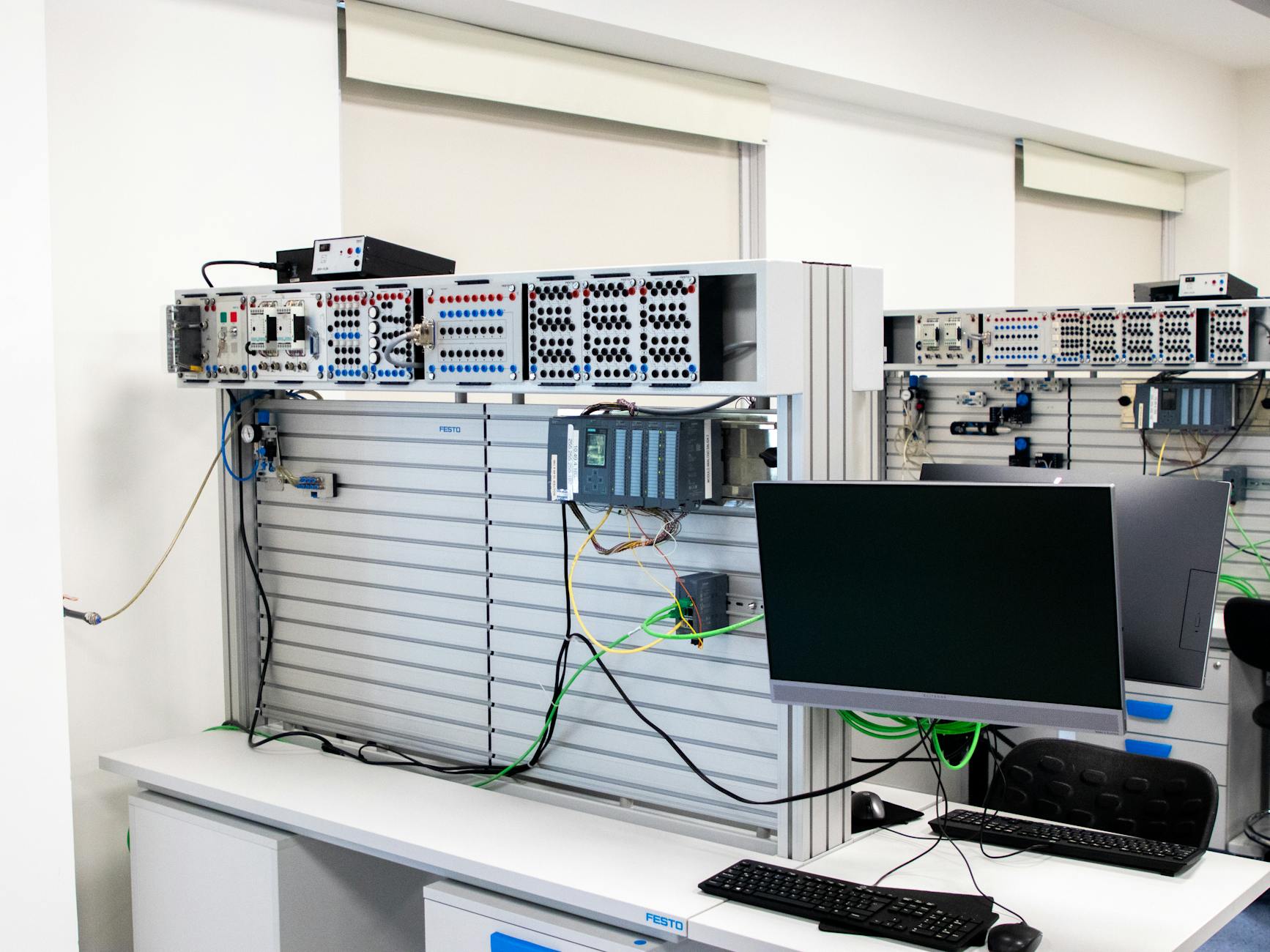Data Engineering Guest Lectures: Insights, Skills, and Industry Trends You Can Learn
Data engineering is evolving fast. Attending guest lectures can be one of the best ways to get ahead in this field. These sessions often feature industry experts sharing real-world insights, practical skills, and the latest trends shaping data engineering. You’ll gain knowledge that you can’t find in textbooks, making these lectures truly valuable.
When you hear from professionals actively working with cutting-edge technologies, you’re not just learning facts; you’re understanding how those concepts apply in the workplace. From discussing the role of data engineering in building AI models to revealing essential tools for the job, guest lectures can help bridge the gap between theory and practice. Each session can inspire you to think critically about the challenges and opportunities within the data engineering space.
If you’re curious about the future of innovation, check out Expert Guest Lectures on Data Engineering & AI Trends for a deep dive into what’s ahead. The practical knowledge gained from these experiences can significantly enhance your skill set, preparing you for a successful career in data engineering.
Understanding Guest Lectures in Data Engineering
Guest lectures play a crucial role in the evolving field of data engineering. These sessions offer an opportunity to learn from industry professionals who share their real-world experiences and insights. By attending guest lectures, you gain exposure to practical applications that bridge the gap between classroom theory and practical industry knowledge. These events are not just informative; they’re transformative, directly impacting your skills and outlook on data engineering.
Definition and Purpose of Guest Lectures
Guest lectures are educational sessions led by external experts from various fields, focusing on specific topics. In data engineering, these lectures provide a platform for students and professionals to learn about the latest tools, technologies, and methodologies in the industry. The primary purpose is to deliver fresh perspectives that you may not find in traditional coursework. This exposure helps you understand the nuances of data handling, system architecture, and collaborative workflows in real projects. It’s like having a backstage pass to see how the experts operate.
Additionally, guest lectures often emphasize networking, allowing you to connect directly with professionals. Building these connections can lead to mentoring opportunities, internships, or job placements, enhancing your career trajectory. Attending these informative sessions can also spark your interest in niche areas, guiding your future studies or career path.
Types of Guest Lectures
Guest lectures come in various formats, catering to different learning styles and preferences. Online guest lectures have become increasingly popular, especially following the global shift towards digital learning. These sessions allow you to access a wider range of experts regardless of geographical limitations. You can attend from the comfort of your home or office, making it convenient for busy schedules.
On the other hand, in-person guest lectures provide a more interactive experience. These sessions typically encourage questions and discussions, fostering an engaging atmosphere. Meeting speakers face-to-face can enhance learning and often leads to more dynamic exchanges.
While each format has its advantages, both serve the same essential purpose: enriching your understanding of data engineering in a way that textbooks alone cannot provide. For more insights on how expert lectures can shape your understanding of this field, check out The Role of Data Engineering in Building Large-Scale AI Models.
Engaging in both online and in-person formats enables you to gain diverse insights and experiences, setting the stage for a well-rounded education in data engineering.

Photo by ThisIsEngineering
Practical Insights from Industry Experts
Guest lectures bridge the gap between academic theories and the dynamic world of data engineering. Through these insights, students and professionals alike can glean valuable lessons from industry experts. The knowledge shared not only adds depth to your learning but also keeps you updated on the latest in data engineering.
Case Studies and Real-Life Applications
During guest lectures, experts often present case studies that reveal practical solutions to real-world problems. These case studies are more than just stories; they are blueprints showcasing how principles of data engineering come to life. For instance, one speaker might discuss a project where big data analytics helped an organization reduce operational costs. By breaking down the methodology, techniques, and tools used, you can see firsthand how theoretical concepts are implemented in practice. This direct connection enhances your understanding of how data pipelines are built and maintained.
Engaging with these real-life applications encourages critical thinking. You start to ask yourself how similar strategies could be applied in your scenario. Whether it’s dealing with data quality issues or ensuring compliance with industry regulations, exposure to these case studies equips you with ideas to tackle challenges you might face in the field. To explore additional insights into guest lectures and their relevance, check out The Role of Data Engineering in Building Large-Scale AI Models.

Photo by Christina Morillo
Skills Development Opportunities
Guest lectures are fantastic for honing specific skills that are vital in data engineering. The hands-on experiences and insights shared by industry leaders allow you to focus on real skills that employers are looking for. Often, these sessions introduce new technologies or tools that you may not encounter in a typical classroom setting.
For instance, a speaker might demonstrate how to optimize data pipelines using a newer analytics framework. This is your chance to not only hear about the technology but also see it in action. The takeaways from these demonstrations can often spark your curiosity to explore further, enhancing your technical proficiency.
Additionally, these lectures encourage interactive learning. You may find yourself in discussions where questions fly back and forth. This two-way communication can deepen your understanding and clarify any misconceptions you might have. The ability to ask questions about specific data engineering challenges is an invaluable resource, turning abstract concepts into tangible skills you can apply immediately.
By immersing yourself in these learning environments, you’re preparing yourself for tomorrow’s challenges. Dive deeper into the advantages of guest lecturing encounters Personal Learning: The Multiple Benefits of Guest Lecturing, where you’ll discover how these sessions can strategically develop your skill set.
Engaging with industry experts through guest lectures is not just an educational opportunity; it’s an investment in your future career in data engineering.
Current Industry Trends Shared by Experts
Guest lectures in data engineering serve as a vital link to understanding how the field is being shaped by emerging technologies and evolving job market demands. The insights from industry experts are not just eye-opening; they are an essential resource for anyone looking to stay relevant in a fast-paced environment.
Emerging Technologies and Their Impact
Emerging technologies are radically transforming data engineering. One key trend is the rise of Artificial Intelligence and Machine Learning. These technologies are not only enhancing the ability to predict and optimize data processes, but they also create new roles within data science teams. Imagine you’re working on a project and suddenly need to integrate AI capabilities. Guest lecturers can provide you with practical insights on how to navigate these challenges, showcasing tools and methods currently utilized in the industry.
Another significant trend is the adoption of Data Mesh architecture, which facilitates decentralized data management. This approach promotes better accessibility and collaboration across teams, enabling more agility and faster decision-making. Speakers often share their firsthand experiences from implementing such architectures, revealing the pitfalls to avoid and the best practices to follow.
To gain a deeper understanding of these trends, a detailed overview of the future of data careers can provide clarity on upcoming opportunities and challenges in the industry. As the landscape evolves, professionals must stay informed about these transformative changes to enhance their skills effectively.

Photo by Ludovic Delot
Future Job Market and Skills Demand
As the data engineering field progresses, it’s crucial to understand the skills that will be in high demand. Based on insights from various guest lectures, you can expect a growing need for expertise in areas like data governance and cloud computing. These are not just buzzwords; they represent critical competencies that will define future job roles. Attending guest lectures allows you to glean insights on which skills may give you a competitive edge.
For instance, you may find that knowledge in managing data pipelines using cloud-native solutions is increasingly sought after. Thus, when experts share their experiences, they often highlight specific tools or languages that are beneficial for enhancing your portfolio. This is where guest lectures become invaluable. They not only shed light on emerging trends but also help you map out which technologies to focus on.
Additionally, the rise of automated data engineering solutions introduces its own set of skills. Understanding low-code and no-code tools, for example, can significantly streamline workflows and boost productivity. By attending guest lectures on these topics, you can gather actionable advice from experts who have successfully navigated this shifting landscape.
For further exploration, consider reading about the top trends in data infrastructure for 2025. This knowledge can assist you in preparing for the roles that will likely emerge as these trends take hold.
Stay engaged, ask questions, and be proactive in learning. You’re not just absorbing information; you’re taking actionable steps to prepare yourself for a vibrant career in data engineering.
Technical Knowledge and Advanced Concepts
Understanding the technical knowledge shared during guest lectures can significantly enhance your capabilities in data engineering. These sessions provide a unique platform for gaining insights not just into tools but also into advanced concepts that shape the field. As you dive into these topics, envision how they can be applied to real-world scenarios. This connection between theory and application is what makes guest lectures so valuable.
Deep Dives into Tools and Technologies
Guest lectures often cover specific tools and technologies crucial for aspiring data engineers. For instance, a recent lecture might have explored Apache Kafka, a vital tool for processing streaming data. Through real-life examples, the speaker showed how this tool can help companies handle large volumes of real-time data efficiently. Understanding how to deploy Kafka properly can give you an edge in roles that require near-instantaneous data processing.
Another tool often discussed is Apache Spark. It is favored for its ability to handle big data analytics with ease. In a guest lecture, experts may walk you through using Spark to run data transformations and complex calculations. This hands-on approach not only illustrates the functionalities of Spark but also helps you comprehend its implications in data workflows comprehensively.
Moreover, insights on cloud technologies like AWS or Azure are invaluable. As organizations migrate to the cloud, knowing how to utilize services effectively for storage, data warehousing, and analytics becomes critical. These guest lectures elucidate how to leverage cloud services to build scalable solutions, connecting theory and practice seamlessly.
For further exploration of essential tools in your journey, check out Advanced Data Modeling Techniques.
Conceptual Understanding of Core Principles
Conceptual understanding is as vital as technical skills in data engineering. Guest lectures often clarify fundamental principles like data modeling, ETL (Extract, Transform, Load), and data governance. These core concepts are foundational to creating efficient and reliable data systems.
For example, while discussing data modeling, a guest speaker might break down various architectures such as star or snowflake schemas. By visualizing how these designs affect performance and scalability, you can see the importance of choosing the right model. Understanding when to apply certain techniques will enhance your decision-making skills when working on complex projects.
Additionally, the principle of data governance comes into play as data engineers need to ensure data quality and compliance. Guest lecturers might emphasize the importance of establishing policies and procedures for managing data access, security, and usage. It’s not just about handling data; it’s about doing it responsibly.
Lastly, concepts tied to data pipelines are frequently explained. The clarity provided in lectures helps you conceptualize how data moves from source to destination and the various stages it undergoes. This solid understanding is crucial, especially in a time where automation in data engineering is becoming more prevalent.
For a deeper dive into these essential principles, consider reading about The Best Books to Read If You Want to Become a Data Engineer.

Photo by Ludovic Delot
Conclusion: The Impact of Guest Lectures
The value of guest lectures in data engineering cannot be overstated. These sessions connect you directly with industry professionals who bring a wealth of experience and current insights that textbooks often miss. When you engage with guest speakers, you get a firsthand look at the challenges and opportunities shaping the data landscape today.
Practical Insights from Experienced Professionals
One of the most significant benefits of guest lectures is the practical knowledge shared during these sessions. Experts share stories about real projects, providing you with insights that can only come from years of hands-on experience. These narratives transform dry concepts into vibrant, relatable scenarios. Hearing how industry leaders overcome technical challenges makes the information feel relevant and applicable. You’re not just passively learning; you’re discovering the creative problem-solving strategies of those who have navigated similar paths.
You might wonder, how can this practical knowledge change your approach? By understanding the intricacies of real-world applications, you will be better equipped to tackle problems that arise in your future roles as a data engineer. For example, learning from case studies about successful implementation of AI in businesses gives you the context needed to approach your own projects with confidence. Explore more on this topic in Expert Guest Lectures on Data Engineering & AI Trends.
Current Industry Trends That Shape the Future
Guest lectures also provide a window into current industry trends. The landscape of data engineering is constantly evolving, and these experts often highlight what’s trending right now. This insight can guide your learning path and career choices, ensuring you stay relevant in a competitive job market. When you hear about the rise of technologies such as Data Mesh architecture or advancements in cloud computing, you can tailor your skillset to meet those demands.
This isn’t just about keeping up; it’s about setting yourself apart. Guest speakers can also reveal skill gaps in the current workforce, giving you the chance to develop expertise in areas others may overlook. If you’re interested in getting ahead, check out discussions about Data Literacy: Why it is Important for Data Engineers to grasp the critical skills you should be developing.
Engaging with Technical Knowledge
Another essential benefit is the chance to engage with advanced technical knowledge. These sessions frequently dive into specific tools and methodologies that you’ll encounter in your career. Whether it’s mastering techniques for managing data pipelines or understanding data governance, you’re gaining knowledge that prepares you for the complexities ahead.
The interactive nature of guest lectures also fosters a culture of learning. You can ask questions directly, engage in discussions, and challenge your understanding in a supportive environment. This immediate feedback loop is invaluable as you develop your technical skills. For those eager to expand their toolset, consider sessions that focus on hands-on learning and real-world applications, such as utilizing cutting-edge frameworks and technologies.

Photo by ThisIsEngineering
Networking Opportunities to Enhance Your Career
Lastly, don’t underestimate the importance of networking during these guest lectures. Each session gives you the chance to connect with professionals who can offer mentorship and guidance. Making the effort to engage with these experts can lead to internships, collaborations, and job opportunities that would otherwise remain out of reach.
The relationships you build during these lectures can serve you well into your career. You’ll find that these connections can lead to resources and support that enhance both your learning experience and professional growth. If you’re interested in the role guest lectures play in your career, take a look at How do guest lectures by industry experts contribute to students’ understanding of the field.
Guest lectures in data engineering present opportunities that far surpass traditional learning. They provide you with insights, practical skills, and industry connections that are invaluable in today’s competitive environment. By engaging with experts and absorbing their knowledge, you’re making significant strides in your journey toward becoming a skilled data engineer.
Real stories of student success

Student TRIPLES Salary with Data Engineer Academy

DEA Testimonial – A Client’s Success Story at Data Engineer Academy
Frequently asked questions
Haven’t found what you’re looking for? Contact us at [email protected] — we’re here to help.
What is the Data Engineering Academy?
Data Engineering Academy is created by FAANG data engineers with decades of experience in hiring, managing, and training data engineers at FAANG companies. We know that it can be overwhelming to follow advice from reddit, google, or online certificates, so we’ve condensed everything that you need to learn data engineering while ALSO studying for the DE interview.
What is the curriculum like?
We understand technology is always changing, so learning the fundamentals is the way to go. You will have many interview questions in SQL, Python Algo and Python Dataframes (Pandas). From there, you will also have real life Data modeling and System Design questions. Finally, you will have real world AWS projects where you will get exposure to 30+ tools that are relevant to today’s industry. See here for further details on curriculum
How is DE Academy different from other courses?
DE Academy is not a traditional course, but rather emphasizes practical, hands-on learning experiences. The curriculum of DE Academy is developed in collaboration with industry experts and professionals. We know how to start your data engineering journey while ALSO studying for the job interview. We know it’s best to learn from real world projects that take weeks to complete instead of spending years with masters, certificates, etc.
Do you offer any 1-1 help?
Yes, we provide personal guidance, resume review, negotiation help and much more to go along with your data engineering training to get you to your next goal. If interested, reach out to [email protected]
Does Data Engineering Academy offer certification upon completion?
Yes! But only for our private clients and not for the digital package as our certificate holds value when companies see it on your resume.
What is the best way to learn data engineering?
The best way is to learn from the best data engineering courses while also studying for the data engineer interview.
Is it hard to become a data engineer?
Any transition in life has its challenges, but taking a data engineer online course is easier with the proper guidance from our FAANG coaches.
What are the job prospects for data engineers?
The data engineer job role is growing rapidly, as can be seen by google trends, with an entry level data engineer earning well over the 6-figure mark.
What are some common data engineer interview questions?
SQL and data modeling are the most common, but learning how to ace the SQL portion of the data engineer interview is just as important as learning SQL itself.